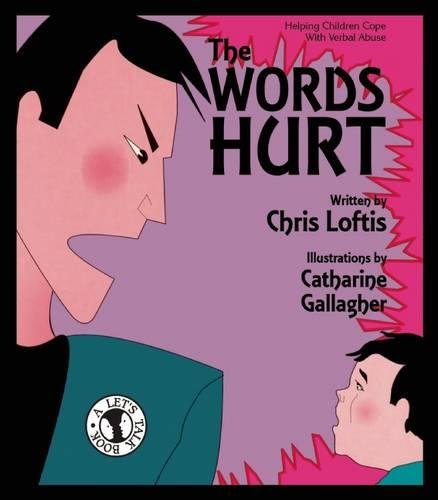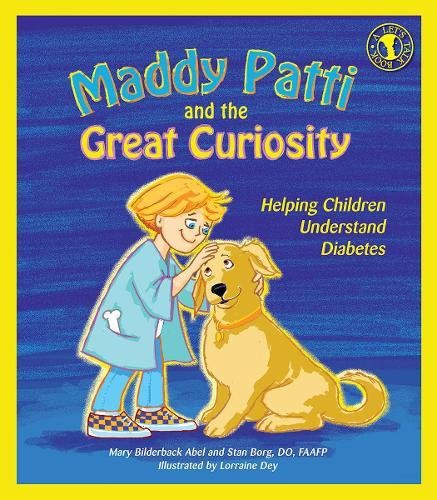-
Not Everyone Is Nice: Helping Children Learn Caution with Strangers
Frederick Alimonti, Ann Tedesco Ph.D., Erik DePrince, Jessica Volinski
Paperback (New Horizon Press, Oct. 1, 2003)Kathy is waiting for her mother outside of school when a strange car approaches. The smiling man inside offers to drive Kathy home, suggesting that her mother may be hurt or sick. Just before Kathy is ready to climb in, her mother arrives and the man speeds off. Kathy is confused and hurt that the nice man would leave so quickly.Later that night, Kathy's parents use examples from nature of pretty but lethal plants and fish to show her that animals and people that look or seem nice may be very dangerous. Not Everyone is Nice teaches children what to do if a stranger approaches and reminds them that looking or acting nice doesn't mean a person is safe. M
M
-
I Am So Angry, I Could Scream: Helping Children Deal with Anger
Laura Fox, Chris Sabatino
Paperback (New Horizon Press, Oct. 1, 2000)Unresolved anger in children can erupt in damaging and inappropriate behavior. In this story, nine-year-old Penny's anger is kindled by several incidents throughout her day at school and home. After holding in her fury for so long, when she finally lets the angry feelings out, it is a negative emotional explosion.I Am So Angry, I Could Scream teaches children techniques for releasing anger in healthy ways and methods for preventing anger-inducing situations. Young readers are shown how to keep an anger chart to identify the causes of their angry feelings and how to find positive ways to work through them. K
K
-
Up and Down the Mountain: Helping Children Cope with Parental Alcoholism
Pamela Leib Higgins, Gail Zawacki
Paperback (New Horizon Press, Nov. 1, 1994)Up and Down the Mountain begins on the day of Jenny's sixth grade graduation as she wonders if her daddy an alcoholic will attend.Alcoholism is a disease which touches many families, especially affecting children, who will often blame themselves for the grief and unhappiness around them. This book shows them it's not their fault and gives hope. N
N
-
The Empty Place: A Child's Guide Through Grief
Roberta Temes Ph.D., Kim Carlisle
Paperback (New Horizon Press, Nov. 1, 1992)When a nine-year-old boy's beloved big sister dies, he is confused, angry and fearful. For the first time he must face the finality of death and the pain of loss. His parents, also grieving, seem distant, until a counselor teaches them all how to cope and heal. K
K
-
Why Can't Jimmy Sit Still?
Sandra L. Tunis, Maeve Kelly
Paperback (New Horizon Press, Oct. 1, 2004)Jimmy behaves like a wiggle-worm. He squirms. He fidgets. He calls out in class, and just can't settle down. Designed to help and teach kids, parents, educators, and caregivers to open discussions about hyperactivity and other learning disorders, this comforting and charming rhyming story reassures youngsters with ADHD that they are not to blame for the "racing motors." K
K
-
The Words Hurt: Helping Children Cope with Verbal Abuse
Chris Loftis, Catharine Gallagher
Paperback (New Horizon Press, Jan. 1, 1997)Physical abuse is not the only thing that scars a child. Words hurt too, and children often have no way of handling the harsh criticism of parents. In The Words Hurt, readers follow the story of Greg, whose father's problems have caused him to lash out at this son and fail to express the love he truly feels. Beautiful illustrations and a moving story provide critical support for children suffering from verbal abuse reassuring them that they are good, not bad people, and are not alone. O
O
-
Talk Like a Basketball Player
Ryan Nagelhout
Paperback (Gareth Stevens Pub, Jan. 1, 2017)Basketball is a game of numbers. Scoring points is one thing, but readers might not know that each position in basketball has a number, too! Its just one of the many fun facts about basketball a reader needs to know to sound like a pro. Full-color photographs and graphic organizers explain concepts like the difference between a small forward and a power forward while introducing new terminology that helps readers get their heads in the game and ready to take the floor. K
K
-
Maddy Patti and the Great Curiosity: Helping Children Understand Diabetes
Stan W. Borg, Mary Bilderback Abel, Lorraine Dey
Paperback (New Horizon Press, June 9, 2015)Maddy Patti is a young girl who goes to her grandfather's farm every summer to spend time with him and all of his animals. Maddy's grandfather, Pop-Pop, is a retired country doctor. During her visit to the farm, her friend Gideon Green tells her he has a disease called diabetes. Since Maddy Patti has the gift of being able to communicate with animals, they help her understand diabetes. Pop-Pop discusses diabetes with Gideon and explains that with proper care and a healthy diet Gideon can play, work, and have fun just like any other child. When one of Pop-Pop's goats gets into trouble, Gideon saves the day. Children who have friends suffering from diabetes, or who themselves confront the disease, learn more about their own and other's symptoms and problems, treatments, and prospering despite living with the disease. L
L
-
A Treasure Hunt for Mama and Me: Helping Children Cope with Parental Illness
Renee Le Verrier, Samuel Frank, Adam Taylor
Paperback (New Horizon Press, June 4, 2013)Billy is excited to take a walk through the woods with his mama. But Billy's mama is different than other mamas. She often stumbles and shakes and needs to stop to take medicine and rest. Billy's mama has Parkinson's disease. While his mama takes breaks, Billy hunts for treasure to add to their collection. They find a pine cone and two shiny stones and Billy hopes to add more.On the walk out of the woods, Billy realizes their yellow pouch of treasures has fallen out of his pack. He runs back to look for it and sees his pouch in some reeds, but he stumbles. Billy's mom comes to help him out of the mud and explains to Billy that the real treasure is each other. The simple, loving message is supplemented with tips and suggestions to help children cope with parental illnesses. J
J
-
Harry the Happy Caterpillar Grows: Helping Children Adjust to Change
Cindy Jett, Kathy Voerg
Paperback (New Horizon Press, June 22, 2010)Harry loves everything about his caterpillar life: crawling up trees, eating leaves, playing with his caterpillar friends, and participating in the Caterpillar Games each Friday. He even enjoys going to caterpillar school where his teacher, a beautiful butterfly named Ms. Betty, teaches about the best leaves to eat. Then one day, Ms. Betty teaches a lesson called "How to Build a Cocoon," where she tells her caterpillar students about building cocoons and turning into butterflies. Harry cannot believe that he has to give up the life he loves as a caterpillar to become a butterfly. Harry decides he won't grow up he wants to stay the same. Harry's friends, however, teach him that change is a good and promising part of life. Harry's endearing, colorfully illustrated story helps children not to fear change and highlights the positive aspects of growth in our rapidly changing world. L
L
-
The Special Raccoon: Helping a Child Learn about Handicaps and Love
Kim Carlisle
Paperback (New Horizon Press, March 1, 1995)This is a lovingly illustrated, unusually moving story of two raccoon sisters, one of whom is profoundly handicapped. In the course of the beautiful spring day they spend together, the "normal" sister learns to accept and appreciate the uniqueness of each one of us. P
P
-
Jessica's Two Familes: Helping Children Learn to Cope with Blended Households
Lynne Hugo LPCC, Adam Gordon
Paperback (New Horizon Press, Aug. 1, 2005)Like so many children from divorced families, Jessica finds herself dealing with the pressures and anger that come when both her mother and father remarry and she has two whole new families to live with, each with different rules. She feels angry because nothing is like how it was before. Her new step-parents set down rules that feel unfair, and her new step-siblings don't seem to want her around. Jessica feels lonely because her mother spends time with her new husband, Mike, and her father is busy with two additional children to raise.With honesty and compassion, Jessica's Two Families teaches children that it is okay to be upset about adjusting to new families. It urges them to share their hurt feelings with their parents and counselors so that everyone can learn how to make the good parts of a new extended family better. Children learn that functioning as blended family will take time, but their efforts will be rewarded. Two new families means twice the love! G
G